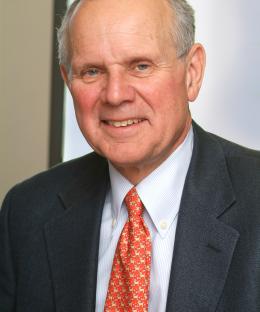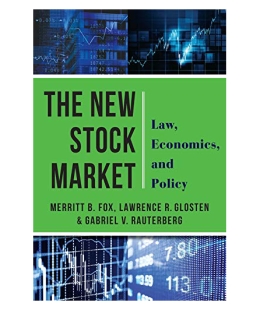
Merritt B. Fox
- Arthur Levitt Professor of Law
Ph.D., Yale University, 1980
J.D., Yale Law School, 1971
B.A., Yale University, 1968
Corporate and Securities Law
Law and Economics
International Finance
Capital Markets Regulation
Corporate Finance

Ph.D., Yale University, 1980
J.D., Yale Law School, 1971
B.A., Yale University, 1968
Corporate and Securities Law
Law and Economics
International Finance
Capital Markets Regulation
Corporate Finance
Merritt Fox is an economist and legal scholar whose work in corporate and securities law is influential in setting the agenda for capital markets regulation. He also is co-director of the Center for Law and Economic Studies and co-director of the Program in the Law and Economics of Capital Markets.
His research interests include law and economics, securities disclosure regulation, international securities regulation, and comparative corporate law. Fox’s books include The New Stock Market: Law, Economics, and Policy (Columbia, 2019), Corporate Governance Lessons From Transition Economy Reforms (Princeton, 2006), and Finance and Industrial Performance in a Dynamic Economy (Columbia, 1987). Fox’s articles have appeared in numerous publications, including the Columbia Law Review, Duke Law Journal, Stanford Law Review, NYU Law Review, Michigan Law Review, and Business Lawyer.
As one of the directors of the Program in the Law and Economics of Capital Markets, Fox leads the New Special Study designed to guide policymaking for capital markets. He brings a law and economics perspective to his courses on Corporate Finance and Securities Regulation. He also has a course on Capital Markets Regulation, which is offered jointly with Columbia Business School.
Fox chairs Columbia’s university-wide Advisory Committee on Socially Responsible Investing. He is a member of the Council on Foreign Relations and past chair of the business association’s section of the Association of American Law Schools.
Before joining Columbia Law School, in 2003, Fox taught at the University of Michigan Law School, where he also served as director of the Center for International and Comparative Law and the co-director for Corporate Governance Studies for the William Davidson Institute at the University of Michigan Business School. He has also taught at Indiana University Law School, Tilburg University, Fordham University Law School, and Yale College.
Before entering academia, Fox practiced corporate and securities law with Cleary, Gottlieb, Steen & Hamilton, focusing on international and domestic public offerings and international lending to Latin America.

The U.S. stock market has been transformed over the past 25 years. Once a market in which human beings traded at human speeds, it is now an electronic market pervaded by algorithmic trading, conducted at speeds nearing that of light. High-frequency traders participate in a large portion of all transactions, and a significant minority of all trade occurs on alternative trading systems known as “dark pools.” These developments have been widely criticized, but there is no consensus on the best regulatory response to these dramatic changes. The New Stock Market offers a comprehensive new look at how these markets work, how they fail, and how they should be regulated. Fox and co-authors Lawrence R. Glosten and Gabriel V. Rauterberg describe stock markets’ institutions and regulatory architecture. They draw on the informational paradigm of microstructure economics to highlight the crucial role of information asymmetries and adverse selection in explaining market behavior while examining a wide variety of developments in market practices and participants. The result is a compelling account of the stock market’s regulatory framework, fundamental institutions, and economic dynamics, combined with an assessment of its various controversies.
A conference on technology and the markets looks at the balance between innovation and regulation.